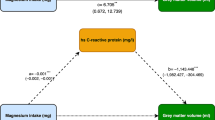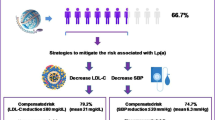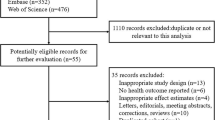Abstract
We examined associations between lipidomic profiles and incident ischemic stroke in the REasons for Geographic and Racial Differences in Stroke (REGARDS) cohort. Plasma lipids (n = 195) were measured from baseline blood samples, and lipids were consolidated into underlying factors using exploratory factor analysis. Cox proportional hazards models were used to test associations between lipid factors and incident stroke, linear regressions to determine associations between dietary intake and lipid factors, and the inverse odds ratio weighting (IORW) approach to test mediation. The study followed participants over a median (IQR) of 7 (3.4–11) years, and the case-cohort substudy included 1075 incident ischemic stroke and 968 non-stroke participants. One lipid factor, enriched for docosahexaenoic acid (DHA, an omega-3 fatty acid), was inversely associated with stroke risk in a base model (HR = 0.84; 95%CI 0.79–0.90; P = 8.33 × 10−8) and fully adjusted model (HR = 0.88; 95%CI 0.83–0.94; P = 2.79 × 10−4). This factor was associated with a healthy diet pattern (β = 0.21; 95%CI 0.12–0.30; P = 2.06 × 10−6), specifically with fish intake (β = 1.96; 95%CI 0.95–2.96; P = 1.36 × 10−4). DHA was a mediator between fish intake and incident ischemic stroke (30% P = 5.78 × 10−3). Taken together, DHA-containing plasma lipids were inversely associated with incident ischemic stroke and mediated the relationship between fish intake and stroke risk.
Similar content being viewed by others
Availability of Data and Materials
Supplemental material for this article is available online. Qualified investigators may request access to obtain de-identified data under institutional data-sharing agreements in accordance with REGARDS publications and presentation guidelines.
References
GBD 2016 Neurology Collaborators. Global, regional, and national burden of neurological disorders, 1990–2016: a systematic analysis for the Global Burden of Disease Study 2016. Lancet Neurol. 2019;18:459–80.
Howard VJ, et al. The reasons for geographic and racial differences in stroke study: objectives and design. Neuroepidemiology. 2005;25:135–43.
Hu Y, Hu FB, Manson JE. Marine omega-3 supplementation and cardiovascular disease: an updated meta-analysis of 13 randomized controlled trials involving 127 477 participants. J Am Heart Assoc. 2019;8:e013543.
Iso H, et al. Intake of fish and omega-3 fatty acids and risk of stroke in women. JAMA. 2001;285:304–12.
He K, et al. Fish consumption and risk of stroke in men. JAMA. 2002;288:3130–6.
He K, et al. Fish consumption and incidence of stroke: a meta-analysis of cohort studies. Stroke. 2004;35:1538–42.
Manson JE, et al. Vitamin D supplements and prevention of cancer and cardiovascular disease. N Engl J Med. 2019;380:33–44.
Manson JE, et al. Vitamin D, marine n-3 fatty acids, and primary prevention of cardiovascular disease current evidence. Circ Res. 2020;126:112–28.
Saber H, et al. Omega-3 fatty acids and incident ischemic stroke and its atherothrombotic and cardioembolic subtypes in 3 US cohorts. Stroke. 2017;48:2678–85.
Eichelmann F, et al. Deep lipidomics in human plasma - cardiometabolic disease risk and effect of dietary fat modulation. Circulation. 2022. https://doi.org/10.1161/circulationaha.121.056805.
Chaudhary NS, et al. Severity of hypertension mediates the association of hyperuricemia with stroke in the REGARDS case cohort study. Hypertension. 2020;75:246–56.
Gillett SR, et al. Validating laboratory results in a national observational cohort study without field centers: the Reasons for Geographic and Racial Differences in Stroke cohort. Clin Biochem. 2014;47:243–6.
Ament Z, et al. Nucleosides associated with incident ischemic stroke in the REGARDS and JHS cohorts. Neurology. 2022;98:e2097–107.
Bhave VM, et al. Plasma metabolites link dietary patterns to stroke risk. Ann Neurol. 2023;93:500–10.
Ament Z, et al. Gut microbiota-associated metabolites and risk of ischemic stroke in REGARDS. J Cereb Blood Flow Metab. 2023;43:1089–98.
Howard VJ, et al. Disparities in stroke incidence contributing to disparities in stroke mortality. Ann Neurol. 2011;69:619–27.
Zakai NA, et al. ABO blood type and stroke risk: the REasons for Geographic and Racial Differences in Stroke (REGARDS) Study. J Thromb Haemost. 2014;12:564–70.
Arora P, et al. Lipoprotein(a) and risk of ischemic stroke in the REGARDS study. Arterioscler Thromb Vasc Biol. 2019;39:810–8.
Gorsuch RL Factor analysis: classic edition. (Routledge, 2014).
Block G, Woods M, Potosky A, Clifford C. Validation of a self-administered diet history questionnaire using multiple diet records. J Clin Epidemiol. 1990;43:1327–35.
Block, G., Wakimoto, P. & Block, T. A revision of the Block Dietary Questionnaire and database, based on NHANES III data
Judd SE, et al. Dietary patterns are associated with incident stroke and contribute to excess risk of stroke in Black Americans. Stroke. 2013;44:3305–11.
Judd SE, Letter AJ, Shikany JM, Roth DL, Newby PK. Dietary patterns derived using exploratory and confirmatory factor analysis are stable and generalizable across race, region, and gender subgroups in the REGARDS study. Front Nutr. 2014;1:29.
Shikany JM, et al. Southern dietary pattern is associated with hazard of acute coronary heart disease in the Reasons for Geographic and Racial Differences in Stroke (REGARDS) study. Circulation. 2015;132:804–14.
Kijpaisalratana N, et al. Association of circulating metabolites with racial disparities in hypertension and stroke in the REGARDS study. Neurology. 2023;100(22):e2312–20. https://doi.org/10.1212/WNL.0000000000207264.
Cushman M, et al. N-terminal pro–B-type natriuretic peptide and stroke risk: the Reasons for Geographic and Racial Differences in Stroke cohort. Stroke. 2014;45:1646–50.
Panwar B, et al. Fibroblast growth factor 23 and risk of incident stroke in community-living adults. Stroke. 2015;46:322–8.
Olson NC, et al. Associations of coagulation factors IX and XI levels with incident coronary heart disease and ischemic stroke: the REGARDS study. J Thromb Haemost. 2017;15:1086–94.
Harrell FE. Regression modeling strategies: with applications to linear models, logistic regression, and survival analysis. Springer. 2001. https://doi.org/10.1007/978-1-4757-3462-1.
Nguyen QC, Osypuk TL, Schmidt NM, Glymour MM, Tchetgen Tchetgen EJ. Practical guidance for conducting mediation analysis with multiple mediators using inverse odds ratio weighting. Am J Epidemiol. 2015;181:349–56.
Venø SK, et al. Marine n-3 polyunsaturated fatty acids and the risk of ischemic stroke. Stroke. 2019;50:274–82.
Yamagata K. Dietary docosahexaenoic acid inhibits neurodegeneration and prevents stroke. J Neurosci Res. 2021;99:561–72.
Whelton SP, He J, Whelton PK, Muntner P. Meta-analysis of observational studies on fish intake and coronary heart disease. Am J Cardiol. 2004;93:1119–23.
Nestel P, et al. Indications for omega-3 long chain polyunsaturated fatty acid in the prevention and treatment of cardiovascular disease. Heart Lung Circ. 2015;24:769–79.
Siscovick DS, et al. Omega-3 polyunsaturated fatty acid (fish oil) supplementation and the prevention of clinical cardiovascular disease. Circulation. 2017;135:e867–84.
He K, et al. Accumulated evidence on fish consumption and coronary heart disease mortality: a meta-analysis of cohort studies. Circulation. 2004;109:2705–11.
Lemaitre RN, et al. n-3 Polyunsaturated fatty acids, fatal ischemic heart disease, and nonfatal myocardial infarction in older adults: the Cardiovascular Health Study. Am J Clin Nutr. 2003;77:319–25.
Steffen BT, et al. Plasma n-3 and n-6 fatty acids are differentially related to carotid plaque and its progression: the Multi-Ethnic Study of Atherosclerosis. Arterioscler Thromb Vasc Biol. 2018;38:653–9.
Mozaffarian D, Wu JHY. Omega-3 fatty acids and cardiovascular disease: effects on risk factors, molecular pathways, and clinical events. J Am Coll Cardiol. 2011;58:2047–67.
Calder PC. Marine omega-3 fatty acids and inflammatory processes: effects, mechanisms and clinical relevance. Biochim Biophys Acta. 2015;1851:469–84.
Borow KM, Nelson JR, Mason RP. Biologic plausibility, cellular effects, and molecular mechanisms of eicosapentaenoic acid (EPA) in atherosclerosis. Atherosclerosis. 2015;242:357–66.
Colussi G, Catena C, Novello M, Bertin N, Sechi LA. Impact of omega-3 polyunsaturated fatty acids on vascular function and blood pressure: relevance for cardiovascular outcomes. Nutr Metab Cardiovasc Dis. 2017;27:191–200.
Nicholls SJ, et al. Effect of high-dose omega-3 fatty acids vs corn oil on major adverse cardiovascular events in patients at high cardiovascular risk: the STRENGTH randomized clinical trial. JAMA. 2020;324:2268.
Farukhi ZM, Mora S, Manson JE. Marine omega-3 fatty acids and cardiovascular disease prevention: seeking clearer water. Mayo Clin Proc. 2021;96:277–9.
Özkaya A, Erdoğan HA, Acır İ, Çabalar M, Yayla V. The comparison of TOAST, CCS, and ASCO etiological classifications in ischemic stroke patients. Med J Bakirkoy. 2022;18:121–6.
Mente A, et al. Association of dietary nutrients with blood lipids and blood pressure in 18 countries: a cross-sectional analysis from the PURE study. Lancet Diabetes Endocrinol. 2017;5:774–87.
Chang C-H, et al. Safety and tolerability of prescription omega-3 fatty acids: a systematic review and meta-analysis of randomized controlled trials. Prostaglandins Leukot Essent Fatty Acids. 2018;129:1–12.
Bhatt DL, et al. Cardiovascular risk reduction with icosapent ethyl for hypertriglyceridemia. N Engl J Med. 2019;380:11–22.
Yokoyama M, et al. Effects of eicosapentaenoic acid on major coronary events in hypercholesterolaemic patients (JELIS): a randomised open-label, blinded endpoint analysis. Lancet. 2007;369:1090–8.
Jacobson TA. A new pure ω-3 eicosapentaenoic acid ethyl ester (AMR101) for the management of hypertriglyceridemia: the MARINE trial. Expert Rev Cardiovasc Ther. 2012;10:687–95.
Ballantyne CM, et al. Icosapent ethyl effects on fatty acid profiles in statin-treated patients with high triglycerides: the randomized, placebo-controlled ANCHOR study. Cardiol Ther. 2019;8:79–90.
Liao J, Xiong Q, Yin Y, Ling Z, Chen S. The effects of fish oil on cardiovascular diseases: systematical evaluation and recent advance. Front Cardiovasc Med. 2021;8:802306.
Zhang H, et al. Characterization of positional distribution of fatty acids and triacylglycerol molecular compositions of marine fish oils rich in omega-3 polyunsaturated fatty acids. Biomed Res Int. 2018;2018:3529682.
Dodds ED, McCoy MR, Rea LD, Kennish JM. Gas chromatographic quantification of fatty acid methyl esters: flame ionization detection vs. electron impact mass spectrometry. Lipids. 2005;40:419–28.
Acknowledgements
The authors thank the other investigators, the staff, and the participants of the REGARDS study for their valuable contributions. A full list of participating REGARDS investigators and institutions can be found at: https://www.uab.edu/soph/regardsstudy/.
Funding
This work was supported by the National Institutes of Health (NIH) R01 NS099209 (WTK) and American Heart Association (AHA) 17CSA33550004 (WTK). REGARDS is supported by cooperative agreement U01 NS041588 co-funded by the National Institute of Neurological Disorders and Stroke (NINDS) and the National Institute on Aging (NIA), NIH, Department of Health and Human Service.
Author information
Authors and Affiliations
Contributions
Data acquisition and analysis: ZA and WTK. Statistical analysis: ZA, AP, VMB, MRI, SEJ, and LL. Manuscript draft: ZA and WTK. Critical revision and important intellectual content: RJS, PMR, VMB, NK, ACJ, CC, SJR, SEJ, MC, DLL, and MRI. All authors revised, edited, and approved the final version of the manuscript. MRI and WTK had full access to all the data in the study and took responsibility for the integrity of the data and the accuracy of the data analysis. All authors approved the version to be published.
Corresponding author
Ethics declarations
Conflict of Interest
DLL received investigator-initiated research support from Amgen, Inc. for work unrelated to this manuscript. All other authors declare that they have no conflicts of interest.
Disclaimer
The content is solely the responsibility of the authors and does not necessarily represent the official views of the NINDS or the NIA. Representatives of the NINDS were involved in the review of the manuscript but were not directly involved in the collection, management, analysis, or interpretation of the data.
Additional information
Publisher's Note
Springer Nature remains neutral with regard to jurisdictional claims in published maps and institutional affiliations.
Supplementary Information
Below is the link to the electronic supplementary material.
Rights and permissions
Springer Nature or its licensor (e.g. a society or other partner) holds exclusive rights to this article under a publishing agreement with the author(s) or other rightsholder(s); author self-archiving of the accepted manuscript version of this article is solely governed by the terms of such publishing agreement and applicable law.
About this article
Cite this article
Ament, Z., Patki, A., Bhave, V.M. et al. Omega-3 Fatty Acids and Risk of Ischemic Stroke in REGARDS. Transl. Stroke Res. (2024). https://doi.org/10.1007/s12975-024-01256-7
Received:
Revised:
Accepted:
Published:
DOI: https://doi.org/10.1007/s12975-024-01256-7




